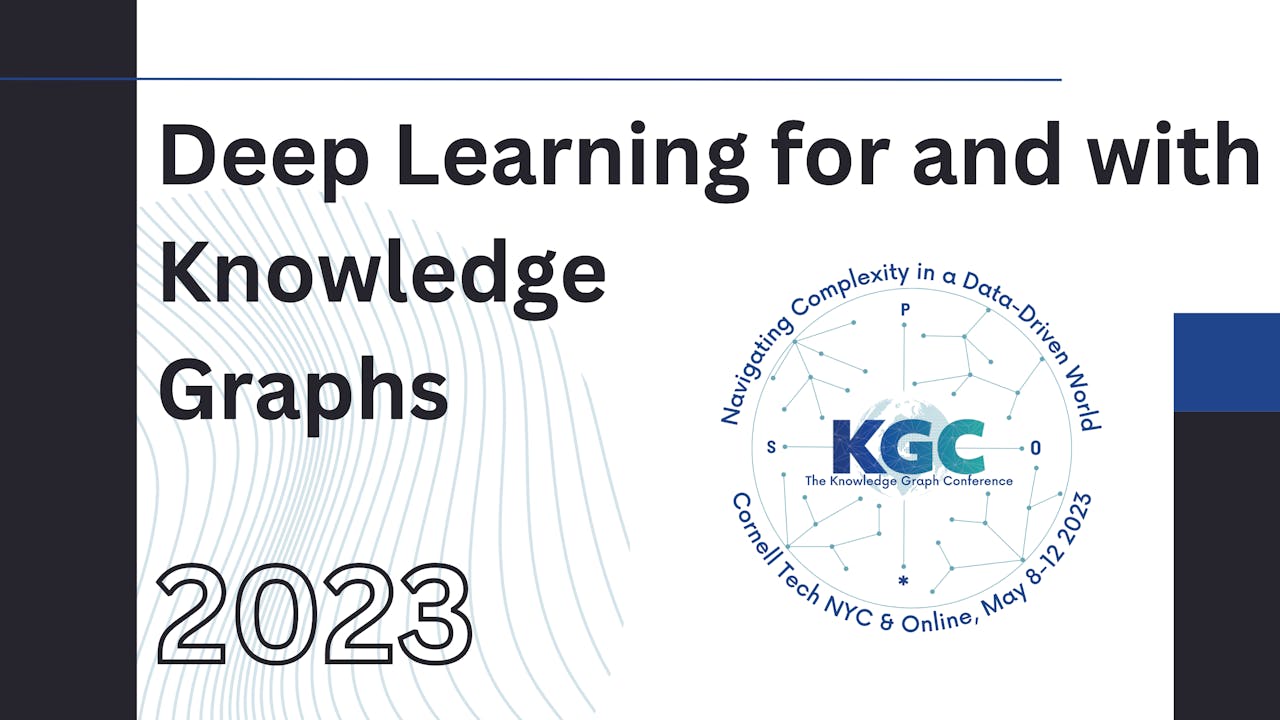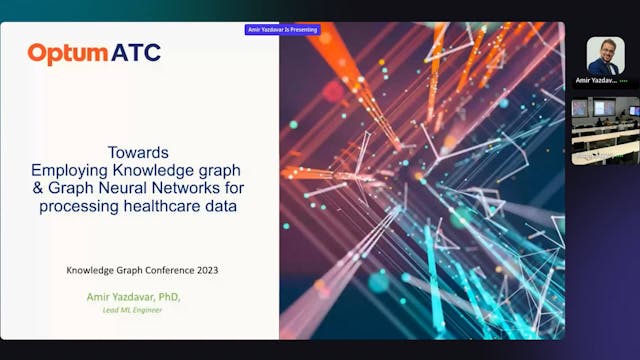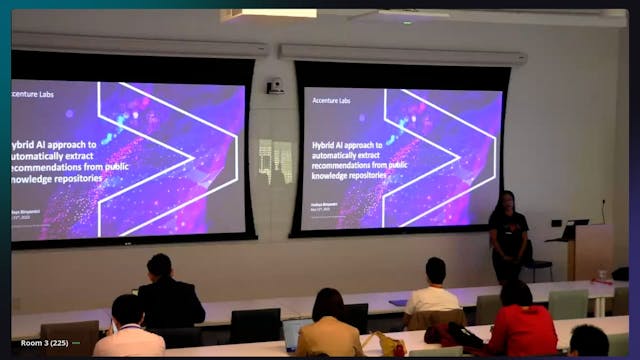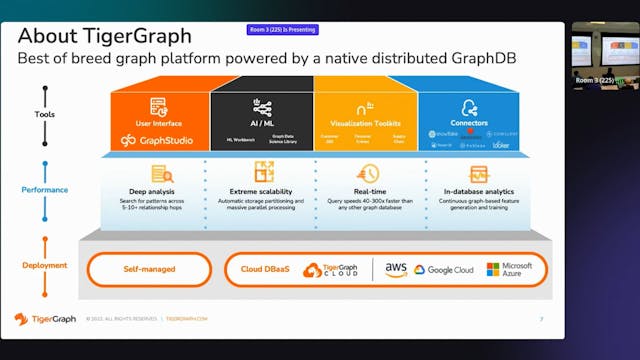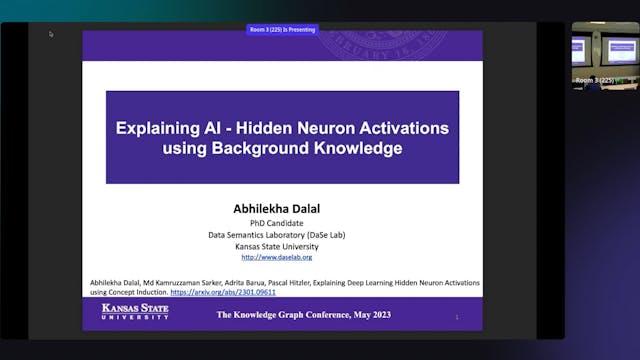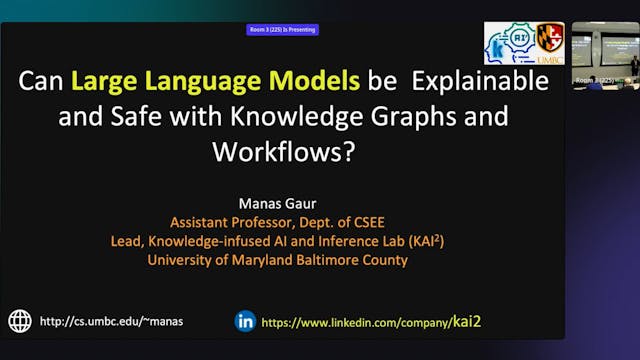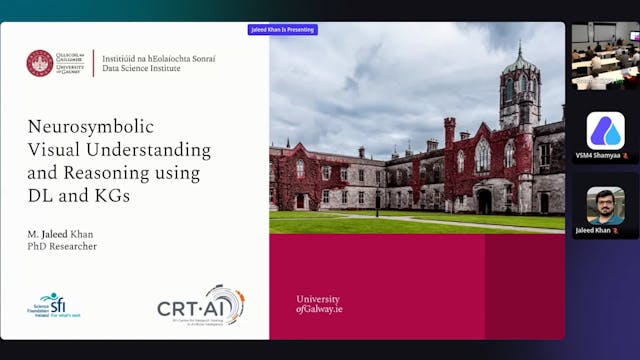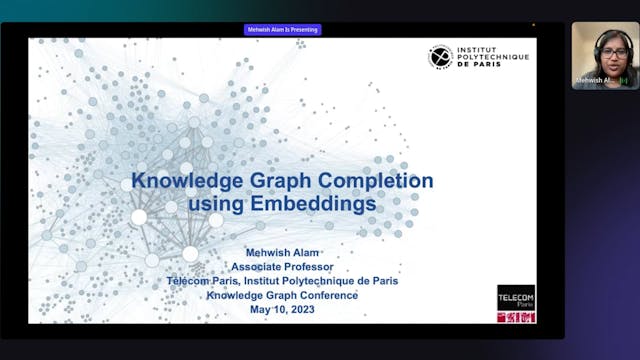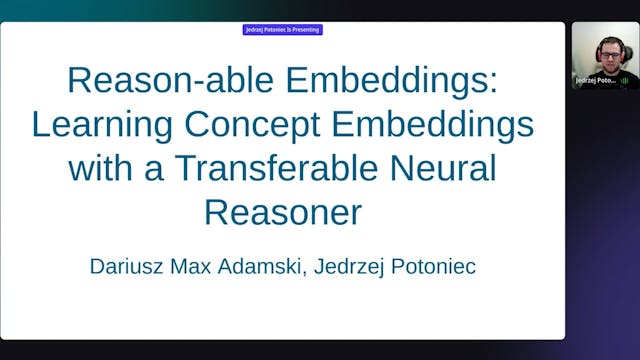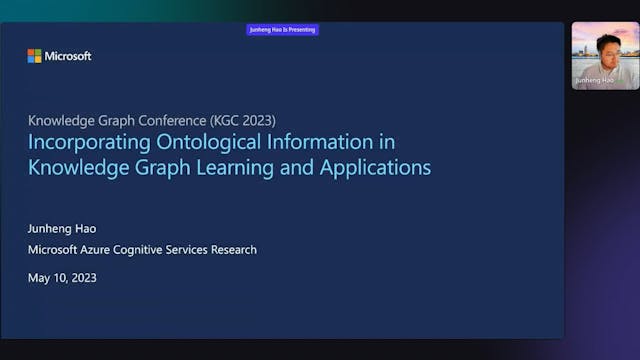-
Towards Employing KG & Graph Neural Networks for Processing Healthcare Data
Graphs are ubiquitous, they form a language for describing entities and their interactions. They are emerging as a powerful data analytic tool for addressing difficult real-world problems and more recently graph representation learning has revolutionized AI and modern data science tasks. In Optum...
-
Using a Hybrid AI Approach to Automatically Extract Recommendations
The emerging landscape of deep learning and knowledge graph technologies provides vast opportunities to use public repositories as a source of knowledge for recommendations. Often, the knowledge is represented as a knowledge graph, and a recommendation regarding an entity instance is extracted by...
-
Graph Embedding Techniques - Matrix Factorization to Deep Learning
Graph embeddings can be used for a variety of applications, including recommendation, fraud detection, and other machine learning tasks. In this work, we aim to walk through various different embedding techniques, starting with spectral approaches, moving towards graph neural networks, and finall...
-
Explainable AI using Background Knowledge
One of the current key challenges in Explainable AI is in correctly interpreting activations of hidden neurons. It seems evident that accurate interpretations thereof would provide insights into the question what a deep learning system has internally detected as relevant on the input, thus liftin...
-
Targeted Knowledge Infusion To Make Conversational AI Explainable and Safe
Conversational Systems (CSys) represent practical and tangible outcomes of advances in NLP and AI. CSys see continuous improvements through unsupervised training of large language models (LLMs) on a humongous amount of generic training data. However, when these CSys are suggested for use in domai...
-
Neuralsymbolic Visual Understanding and Reasoning using Deep Learning and KGs
Visual AI has made incredible progress in basic vision tasks using deep learning techniques that can detect concepts in visual scenes accurately and quickly. However, the existing techniques rely on labelled datasets that lack common sense knowledge about visual concepts and have biased distribut...
-
Knowledge Graph Completion using Embeddings
Knowledge Graphs (KGs) are often generated automatically or manually which lead to KGs being in complete. Recent years have witnessed many studies on link prediction using KG embeddings which is one of the mainstream tasks in KG completion. Most of the existing methods learn the latent representa...
-
Efficient Knowledge Graph Construction with Pre-trained Language Models
We aim to bring interested researchers uKnowledge graph construction which aims to extract knowledge from the text corpus, has appealed to researchers. Previous decades have witnessed the remarkable progress of knowledge graph construction on the basis of neural models; however, those models ofte...
-
Learning Concept Embeddings with a Transferable Deep Neural Reasoner
We present a novel approach for learning embeddings of concepts from knowledge bases expressed in the ALC description logic. They reflect the semantics in such a way that it is possible to compute an embedding of a complex concept from the embeddings of its parts by using appropriate neural const...
-
Incorporating Ontological Information in KG Learning & Applications
In this talk, we explores how such hierarchical ontological components in knowledge graphs are incorporated into KG representation learning. We present multiple practical machine learning methods, such as hierarchical graph modeling, graph neural networks, self-supervised learning, and language m...

